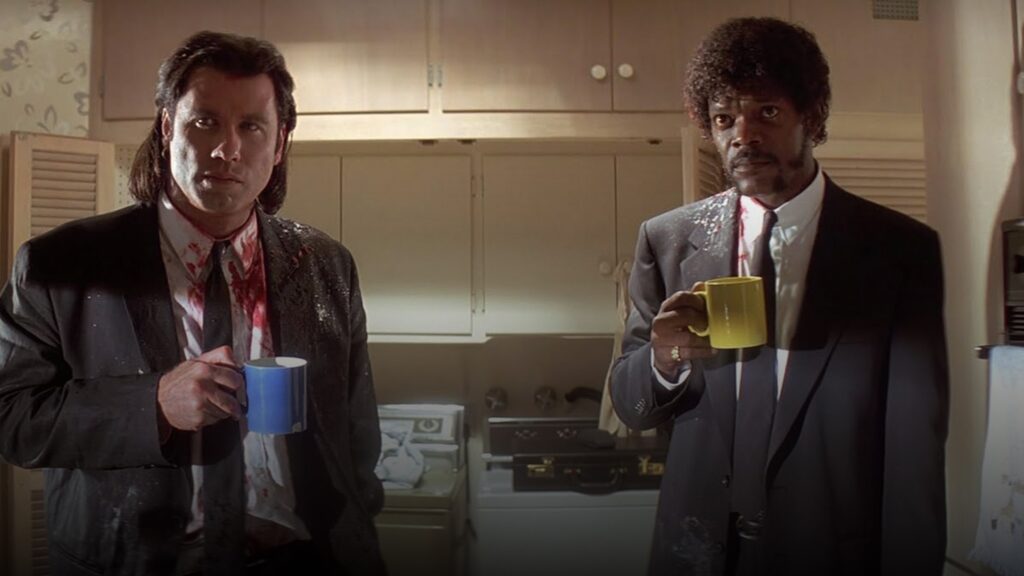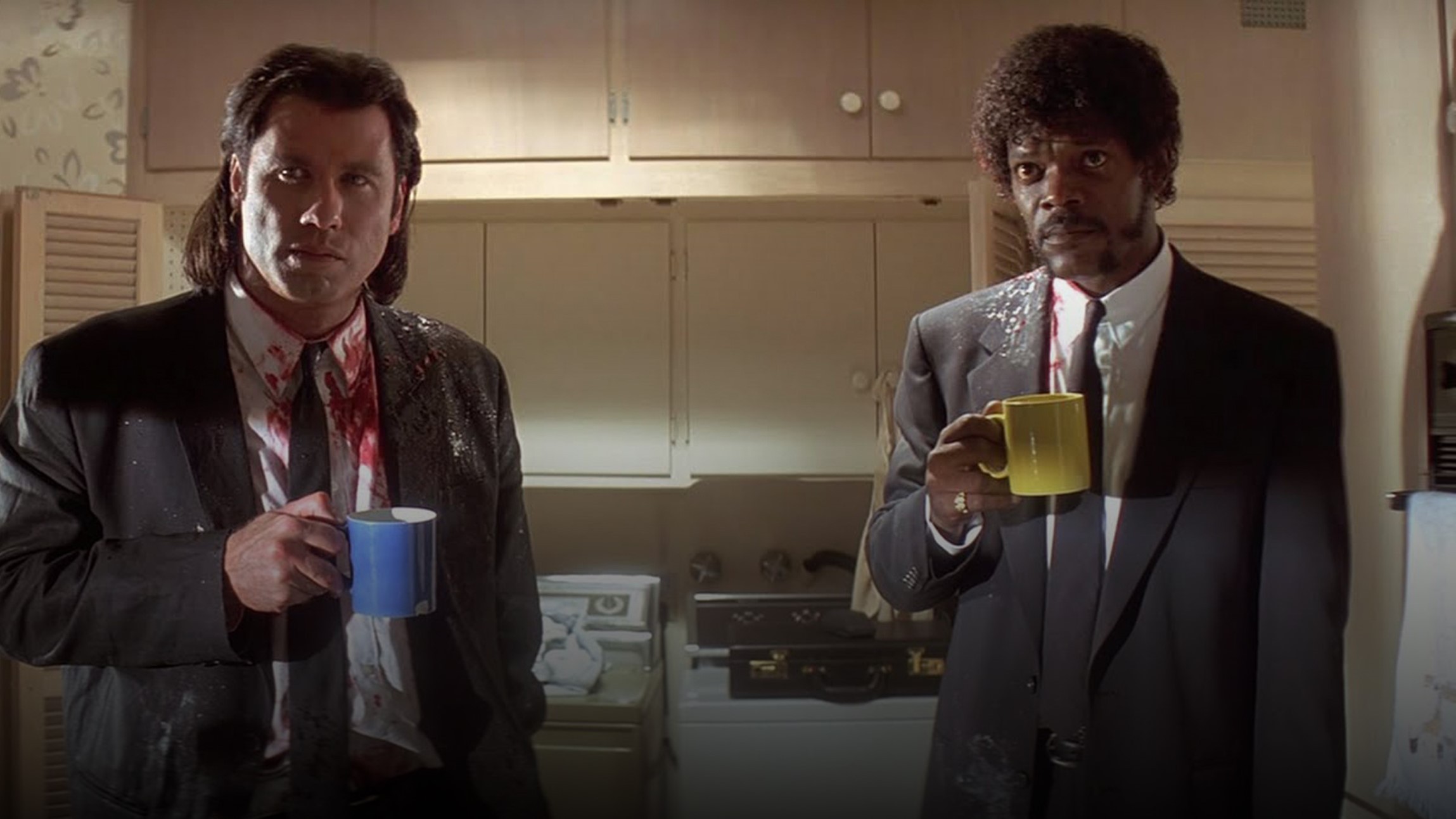
Pulp Fiction: A Timeless Masterpiece of Crime and Pop Culture
Quentin Tarantino’s Pulp Fiction, released in 1994, is more than just a film; it’s a cultural phenomenon. This non-linear crime anthology, starring John Travolta, Samuel L. Jackson, Uma Thurman, and Bruce Willis, redefined independent cinema and left an indelible mark on filmmaking. Its sharp dialogue, eclectic soundtrack, and innovative narrative structure continue to captivate audiences and inspire filmmakers nearly three decades later. This article will delve into the film’s enduring appeal, exploring its themes, impact, and legacy.
The Revolutionary Narrative Structure of Pulp Fiction
One of the most defining aspects of Pulp Fiction is its non-linear storytelling. Instead of following a traditional chronological order, the film presents its stories out of sequence, creating a fragmented and engaging viewing experience. This unconventional approach forces the audience to piece together the narrative, mirroring the chaotic and unpredictable nature of the criminal underworld depicted in the film. The brilliance lies in how Tarantino manages to weave these seemingly disparate storylines together, culminating in a satisfying and cohesive whole. This innovative narrative structure, while initially perplexing to some, quickly became one of the film’s most celebrated features and has been widely imitated since. [See also: The Impact of Independent Cinema on Hollywood]
Memorable Characters and Iconic Performances
Pulp Fiction is populated with a cast of unforgettable characters, each brought to life by stellar performances. John Travolta’s portrayal of Vincent Vega marked a career resurgence for the actor, while Samuel L. Jackson’s Jules Winnfield became an instant icon with his philosophical musings and menacing demeanor. Uma Thurman’s Mia Wallace is equally captivating, embodying both vulnerability and allure. Bruce Willis delivers a compelling performance as Butch Coolidge, a boxer on the run. The supporting cast, including Harvey Keitel as Winston Wolf and Tim Roth as Ringo, further enrich the film’s tapestry of colorful personalities. These characters, with their distinct quirks and memorable dialogues, contribute significantly to the film’s enduring appeal.
Dialogue as Art: The Power of Tarantino’s Writing
Tarantino’s writing is arguably the film’s greatest strength. The dialogue in Pulp Fiction is sharp, witty, and often surprisingly philosophical. Characters engage in conversations about everything from foot massages to the merits of different European condiments, elevating mundane topics to moments of profound insight. The dialogue is not merely functional; it’s a character in itself, shaping the film’s tone and revealing the personalities of its protagonists. The famous Ezekiel 25:17 monologue, delivered with fervor by Jules Winnfield, is a prime example of Tarantino’s ability to blend the profane with the profound. This masterful use of language is a key element of what makes Pulp Fiction a cinematic masterpiece.
The Soundtrack: A Symphony of Sound and Style
The soundtrack of Pulp Fiction is as iconic as the film itself. Featuring a diverse range of genres, from surf rock to soul to country, the music perfectly complements the film’s eclectic visuals and narrative. Tracks like Dick Dale’s “Misirlou” and Urge Overkill’s cover of Neil Diamond’s “Girl, You’ll Be a Woman Soon” have become synonymous with the film. Tarantino’s meticulous selection of music not only enhances the mood of each scene but also serves as a form of commentary, adding layers of meaning to the narrative. The soundtrack’s success further solidified the film’s status as a cultural touchstone. [See also: The Best Movie Soundtracks of All Time]
Themes of Redemption and Violence in Pulp Fiction
While often celebrated for its style and wit, Pulp Fiction also explores deeper themes of redemption and violence. The film grapples with the consequences of violence, portraying its brutal reality without glorifying it. Characters like Jules Winnfield undergo transformative experiences, questioning their past actions and seeking a path towards redemption. The film suggests that even in the darkest corners of the criminal underworld, the possibility of change and self-improvement exists. This exploration of morality and personal growth adds a layer of complexity to the film’s otherwise stylized violence.
The Enduring Legacy of Pulp Fiction
Pulp Fiction‘s impact on cinema is undeniable. It revitalized independent filmmaking, inspiring a new generation of directors to experiment with narrative structure, dialogue, and style. The film’s success demonstrated that unconventional storytelling could resonate with mainstream audiences. Its influence can be seen in countless films and television shows that followed, from its use of non-linear narratives to its stylized violence and memorable characters. Pulp Fiction remains a touchstone for filmmakers and a testament to the power of innovative storytelling. The film’s influence continues to permeate popular culture. Its memorable quotes, iconic scenes, and distinctive style have been referenced and parodied countless times in other media. From Halloween costumes to television commercials, Pulp Fiction‘s presence is still felt today. The film’s enduring popularity is a testament to its timeless quality and its ability to connect with audiences on multiple levels. The film’s ability to blend genres, tones, and styles created a unique cinematic experience. It seamlessly blends elements of crime, comedy, and drama, creating a film that is both entertaining and thought-provoking. This genre-bending approach has influenced countless filmmakers and continues to inspire innovation in cinema. The film’s impact on the fashion world is also noteworthy. Mia Wallace’s iconic bob haircut and minimalist style have been emulated by countless women, solidifying her status as a fashion icon. The film’s costumes and set design have also influenced fashion trends, demonstrating its far-reaching influence. The film’s quotable dialogue has become ingrained in popular culture. Phrases like “Say ‘what’ again!” and “That’s a Royale with Cheese” are instantly recognizable and have been used in countless contexts. The film’s witty and memorable dialogue is a key element of its enduring appeal. The film’s exploration of morality and ethics continues to resonate with audiences. The characters in Pulp Fiction grapple with difficult choices and face the consequences of their actions. This exploration of morality adds depth and complexity to the film, making it more than just a stylish crime thriller. Pulp Fiction remains a cinematic landmark, a film that continues to inspire, entertain, and provoke thought. Its innovative storytelling, memorable characters, and sharp dialogue have cemented its place in film history. Whether you’re a seasoned film buff or a casual moviegoer, Pulp Fiction is a must-see film that will leave a lasting impression. [See also: Quentin Tarantino’s Best Films Ranked]
Conclusion: Why Pulp Fiction Still Matters
Pulp Fiction is more than just a movie; it’s a cultural artifact that continues to resonate with audiences worldwide. Its innovative narrative, memorable characters, sharp dialogue, and iconic soundtrack have cemented its place in cinematic history. The film’s themes of redemption and violence, combined with its stylistic flair, make it a truly unique and enduring work of art. Whether you’re a longtime fan or a newcomer to Tarantino’s world, Pulp Fiction is a film that demands to be seen and appreciated for its groundbreaking contribution to cinema.

